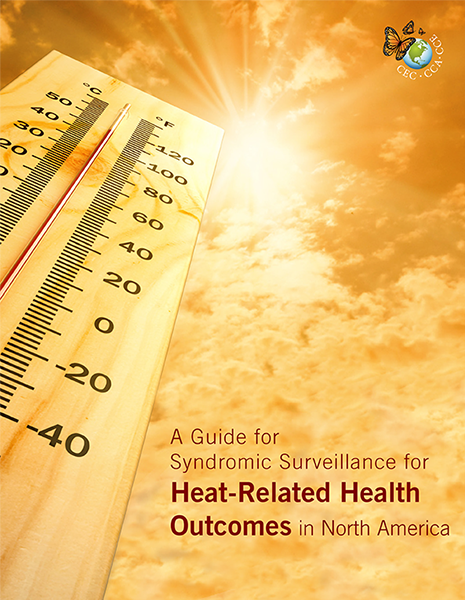A Guide for Syndromic Surveillance for Heat-Related Health Outcomes in North America
A Guide for Syndromic Surveillance for Heat-Related Health Outcomes in North America
Description
As part of a project of the Commission for Environmental Cooperation, this Guide outlines the steps required to create or enhance a syndromic surveillance system to monitor extreme heat events, and highlights the experiences of three participating pilot communities from Canada, Mexico and United States. A successful syndromic surveillance system uses pre-diagnostic data sources to monitor for early signs of health effects in order to enable early public health response.
The five key steps to create (or enhance) a syndromic surveillance system to monitor extreme heat events are: (1) data source identification (including assessment of data suitability, availability, timeliness, and quality); (2) design of system architecture; (3) defining a syndrome to capture heat-related illnesses; (4) defining alerting rules for the system; and (5) integrating health outcomes with weather information (e.g., temperature). The city of Hermosillo, Mexico, built a syndromic surveillance system from the ground up to enable the city’s public health surveillance to include heat-related illnesses; the state of Michigan, United States, improved its existing heat syndrome with additional keywords and improved statistical methods for determining alerting protocols; the city of Ottawa, Canada, improved its current syndromic surveillance for heat-related illnesses by adding near–real-time data from a nurse advice telephone service and displaying health outcomes with meteorological data on a map-based dashboard. The experiences of the pilot communities represent numerous lessons to be learned by communities with varied resources and climates as they develop their syndromic surveillance capacity.
Additional Information
